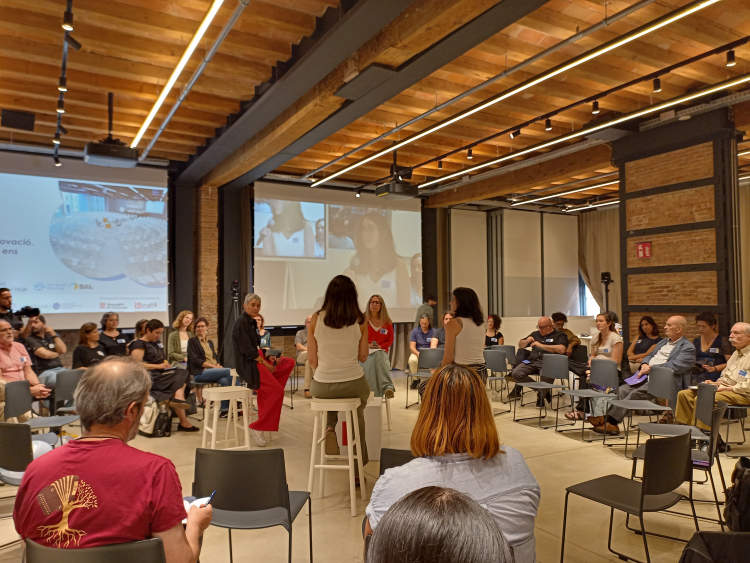Last Thursday, July 4, the Col·laboratorio Catalunya , promoted by the Generalitat de Catalunya and the i2CAT Foundation, with the support of the Metropolitan Strategic Plan, organized the conference 'Temps de Col·laboratorios: promoting digital social innovation in the 'local area' in the city of Barcelona. The meeting began with a presentation by Artur Serra, deputy director at the i2CAT Foundation, and with two open circles: the first open circle revolved around innovation with Nadala Fernández from Fundació Èpica la Fura dels Baus, Bárbara Outeiro de Suara Cooperativa and Bárbara Mitats de Salut Mental Catalunya and the second open circle revolved around projects and experiences for digital social transformation with Toni Codina from Fundació iSocial, María Luisa García Castellano from Fundació Ciutat Viladecans, Albert González from Vtools and Eurídice Cabañes from ArsGame. The day 'Collaboratories time: promoting digital social innovation at the local level' continued with three participatory spaces on the configuration of a collaborative in the metropolitan region, the challenges of access to housing from the digital social innovation ecosystem and the relationship between young people and digital social innovation. Finally, the meeting ended with a visit to three reference spaces in digital social innovation in the metropolitan region: the Citilab in Cornellà de Llobregat, the Canòdrom and the SuaraLAB in Barcelona.
The following day, Friday 5 July, Col·laboratorio Catalunya closed the course with the annual meeting . After a talk by Artur Serra, deputy director of the i2CAT Foundation, a welcome was given by Sergi Figuerola, director of the i2CAT Foundation, and Liliana Arroyo, director general of Societat Digital de la Generalitat de Catalonia Marta Martorell, director of the digital society technologies area of the i2CAT Foundation, presented the digital platform of Col·laboratori Catalunya. Arnau Monterde, director of democratic innovation services at Barcelona City Council, and Nil Homedes, president of the Decidim Association and digital participation technician at the Ferrer i Guàrdia Foundation, spoke about the Decidim tool and of its functionalities and its innovative community uses. Then, two co-creation dynamics were carried out with the aim of defining the common challenges of Col·laboratori Catalunya: talent flight, repopulation, digital well-being and mobility, transport and access to local services . Finally, Ricard Faura, Head of Inclusion and Digital Training of the Generalitat de Catalunya, concluded the annual meeting.



